Black Pearl Milk Tea is a delightful beverage that has captivated many with its creamy flavor and perfect blend of sweetness. Join us as we delve into the nutritional content of this popular drink and explore whether it can lead to weight gain.
1. Nutritional Profile of Black Pearl Milk Tea
Nutritional Value of Black Pearl Milk Tea
The primary ingredients in black pearl milk tea are milk, black tea, black sugar, and tapioca pearls, with optional additions of cream and filtered water. The pearls, an essential topping for this beverage, are made from tapioca starch, rice flour, and cacao powder.
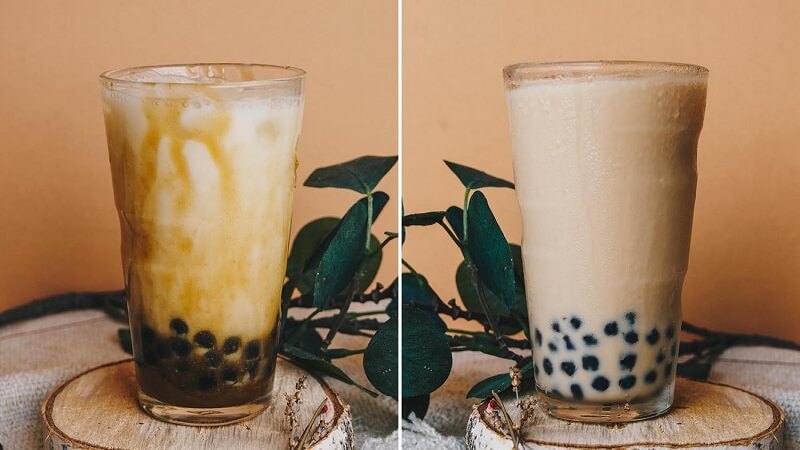 Black pearl milk tea offers a plethora of nutrients
Black pearl milk tea offers a plethora of nutrients
Milk constitutes the most significant proportion of this drink, imparting its creamy, enticing flavor and providing a host of nutrients. The nutritional profile of 100ml of milk is as follows:
-
Energy: 73.2 kcal
-
Protein: 3.2g
-
Fat: 2.9g
-
Carbohydrates: 8.2g
-
Vitamin A: 113 IU
-
Vitamin D: 15 IU
-
Vitamin B12: 26 µg
-
Vitamin B6: 139 µg
-
Calcium: 100 mg
-
Phosphorus: 7.7mg
-
Magnesium: 0.31 mg
Black sugar, the namesake ingredient, boasts impressive nutritional credentials. According to nutritionists, every kilogram of black sugar contains 0.9g of calcium and is rich in vitamins such as vitamin E, vitamin B1, vitamin B2, and vitamin K.
The tapioca pearls, crafted from tapioca starch and rice flour, with optional cacao powder, contribute minimally to the overall nutrition, providing only 1% of the daily fiber and protein requirements.
Thus, it is evident that 100ml of black pearl milk tea delivers a substantial portion of the essential nutrients required by the human body.
Health Benefits of Black Pearl Milk Tea
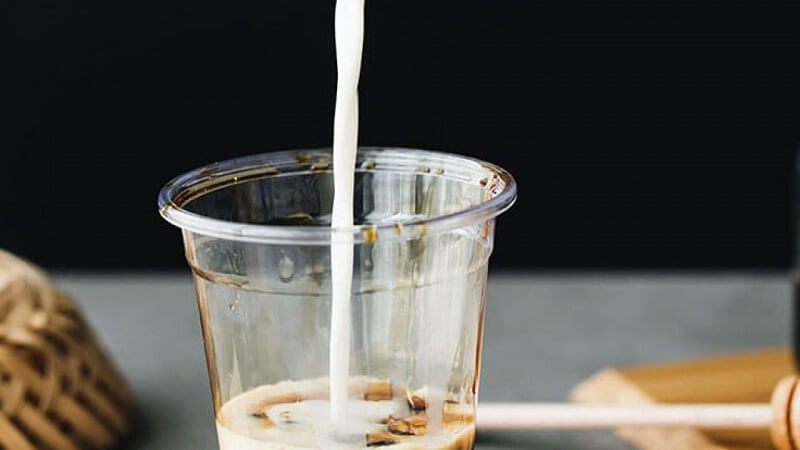 Black pearl milk tea supports bone and immune health
Black pearl milk tea supports bone and immune health
Given that black pearl milk tea is predominantly composed of milk and black sugar, both nutrient-rich ingredients, it stands to reason that this beverage offers a range of health benefits:
-
Bone Health: The calcium and phosphorus in milk fortify bones and teeth, enhance memory, and bolster the immune system.
-
Immune Support: Vitamins A, E, and D, along with minerals like magnesium, potassium, and zinc in milk, strengthen the immune system, heighten disease resistance, and promote overall metabolic function.
 Black sugar and milk are rich in antioxidants
Black sugar and milk are rich in antioxidants
-
Antioxidant Properties: Both black sugar and milk are abundant in antioxidants, which promote skin health, reduce acne, and impart a radiant, youthful complexion.
-
Benefits for Women and Men: Beyond its enticing sweetness, black sugar is particularly beneficial for women, as its iron content boosts hemoglobin production, alleviating menstrual pain and benefiting the stomach, spleen, and liver. It is also recommended for those with anemia and pregnant women. Additionally, both milk and black sugar are known to enhance male virility.
-
Energy and Protein Source: Black pearl milk tea is an excellent source of energy and protein, making it a sensible choice for replenishing lost energy. The protein content also contributes to muscle development.
2. Calorie Count in 100ml of Black Pearl Milk Tea
Calories in Milk
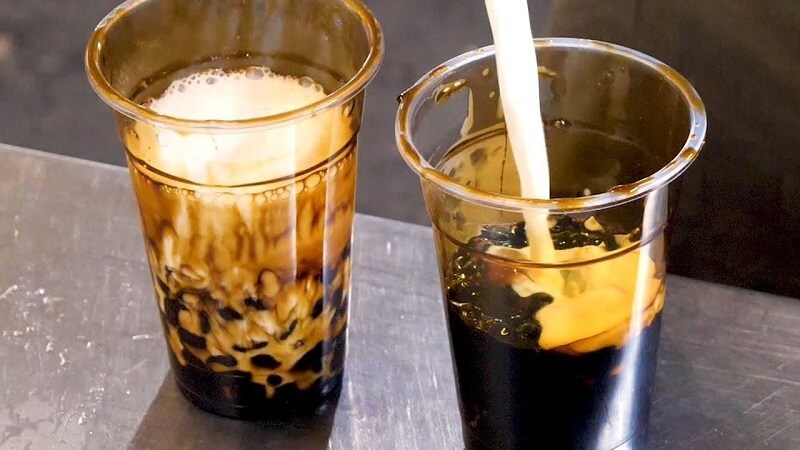 On average, 100ml of milk contains 72.3 calories
On average, 100ml of milk contains 72.3 calories
Typically, 100ml of milk provides 72.3 calories, although this figure can vary depending on factors such as the type of milk and its fat content. For instance, 100ml of whole milk contains 150 calories, while skim milk offers 80 calories.
The calorie count also differs between sweetened and unsweetened milk, with the former containing 76 calories per 100ml and the latter providing 62 calories. Hence, it is challenging to pinpoint the exact calorie content.
Calories in Tapioca Pearls
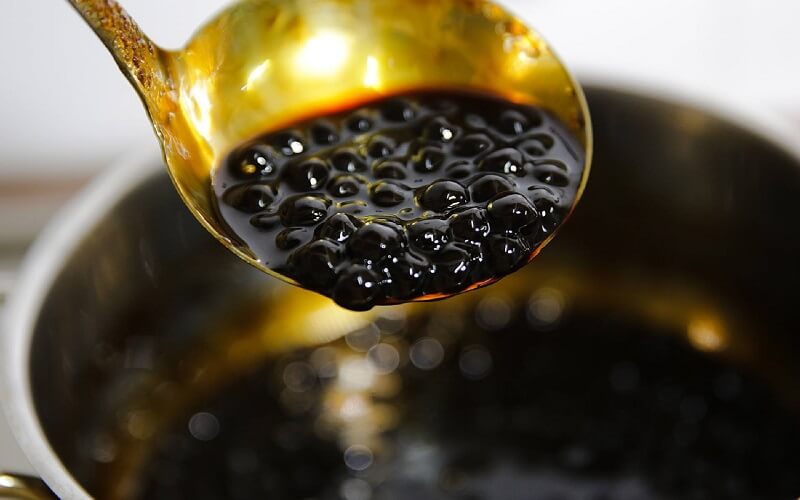 Tapioca pearls are a beloved addition to milk tea
Tapioca pearls are a beloved addition to milk tea
are a beloved addition to milk tea, crafted primarily from tapioca starch and rice flour. Nutritionists estimate that 100g of these pearls, whether plain or black, contain approximately 358 calories.
Black tapioca pearls, which incorporate additional ingredients like cacao powder, clock in at around 370 calories per 100g, surpassing the calorie count of their traditional and white counterparts. So, don’t be fooled into thinking they’re a low-calorie option!
Calories in Black Pearl Milk Tea
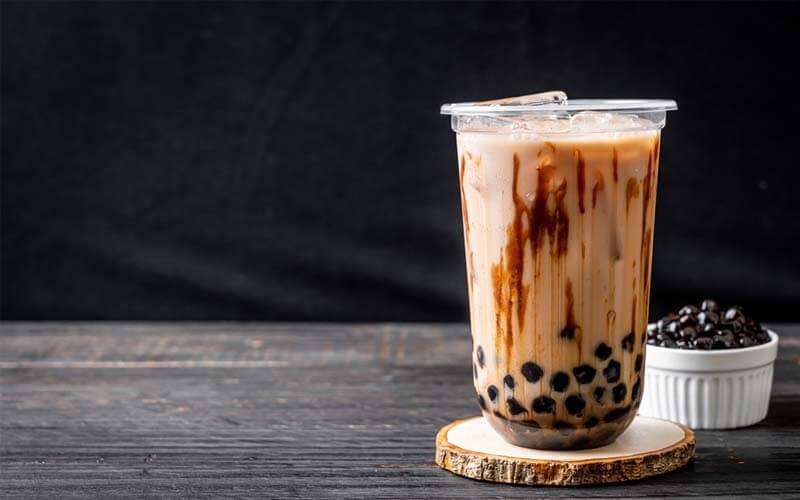 A small-sized cup of black pearl milk tea typically contains 300 – 450 calories
A small-sized cup of black pearl milk tea typically contains 300 – 450 calories
Determining the precise calorie count in black pearl milk tea is challenging due to variations in preparation methods and ingredient proportions. However, nutritionists estimate that a small-sized cup of this beverage contains, on average, 300 – 450 calories, while a fully-loaded cup with all the toppings can reach a staggering 710 calories.
3. Does Drinking Black Pearl Milk Tea Cause Weight Gain?
The short answer is yes. Considering that the recommended daily caloric intake for adults is between 2000 and 2500 calories, evenly distributed across three meals, a single serving of black pearl milk tea (size L with full toppings) already contributes a substantial 710 calories on average, with traditional servings ranging from 300 to 450 calories.
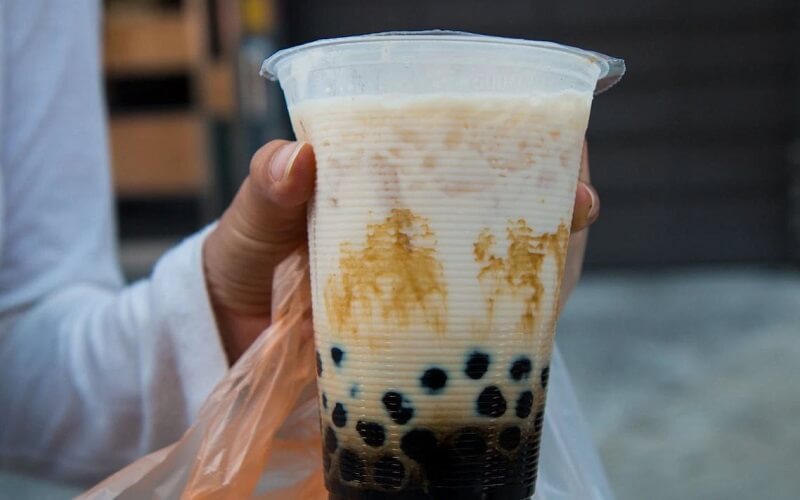 Indulging in black pearl milk tea without exercising can lead to weight gain
Indulging in black pearl milk tea without exercising can lead to weight gain
Evidently, consuming this beverage introduces a significant amount of calories into the body relative to the average intake. Moreover, the presence of unhealthy fats, elevated levels of LDL cholesterol, and minimal fiber content further underscores the potential negative impact on health.
Occasional consumption or pairing this drink with regular exercise minimizes the likelihood of weight gain. Conversely, overindulging without physical activity significantly increases the risk of weight gain, especially for those on a diet or with a history of diabetes, cardiovascular issues, or obesity.
4. Tips for Enjoying Black Pearl Milk Tea While Maintaining Good Health
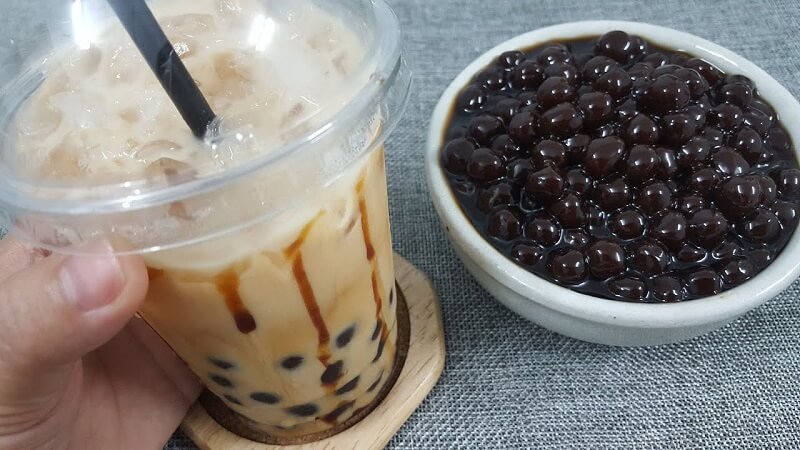 Limit yourself to 1-2 cups per month and go easy on the toppings
Limit yourself to 1-2 cups per month and go easy on the toppings
To savor black pearl milk tea without compromising your health or worrying about weight gain, keep the following tips in mind:
-
Restrict your intake to 1-2 cups per month, and minimize toppings like white tapioca pearls or pudding. Opt for smaller sizes with reduced sugar content (0% or 30%).
-
Avoid drinking immediately after a meal, as it may disrupt nutrient absorption and cause digestive issues. The ideal time to enjoy this beverage is 2-3 hours after a meal.
-
Engage in regular exercise, particularly high-intensity workouts like HIIT, to burn excess calories and fat. This helps prevent fat accumulation and diverts the absorbed nutrients towards nourishing other organs and promoting muscle growth, given the drink’s high protein content.
-
To ensure the quality and safety of the ingredients, opt for reputable brands or prepare the drink yourself at home, allowing for customization to suit your health needs.
In conclusion, we hope this article has enlightened you about the caloric content of black pearl milk tea and inspired you to make informed choices to maintain a healthy balance.
Source: U.S. Department of Agriculture (USDA)

































